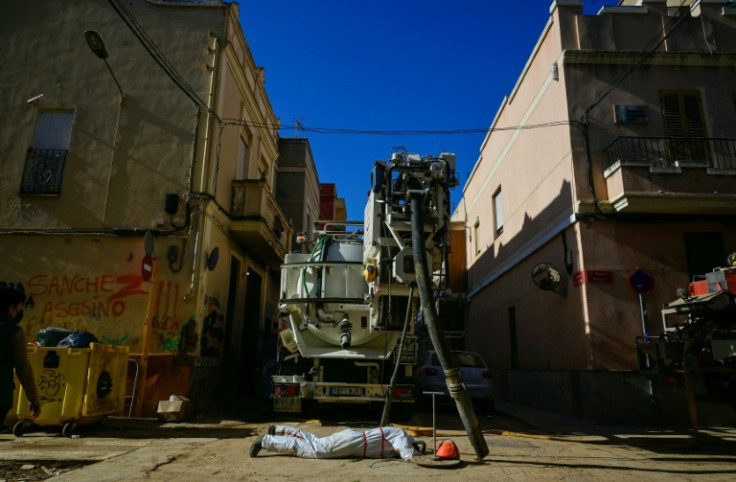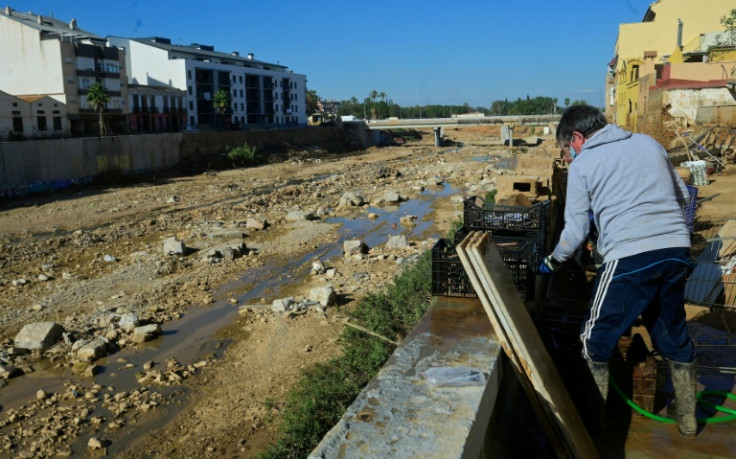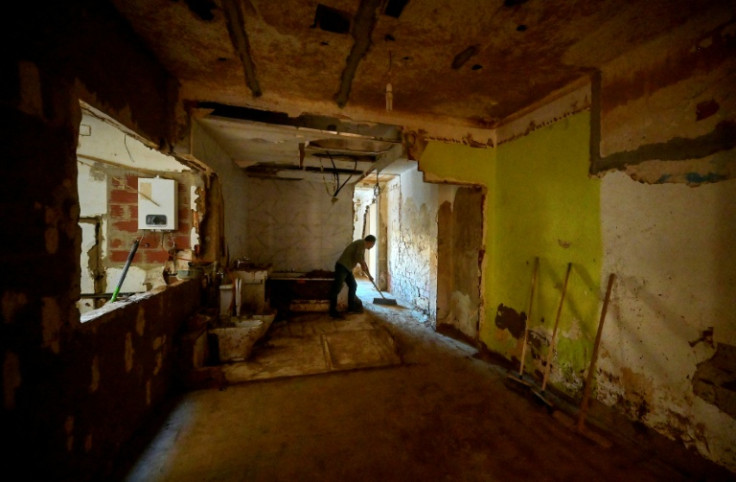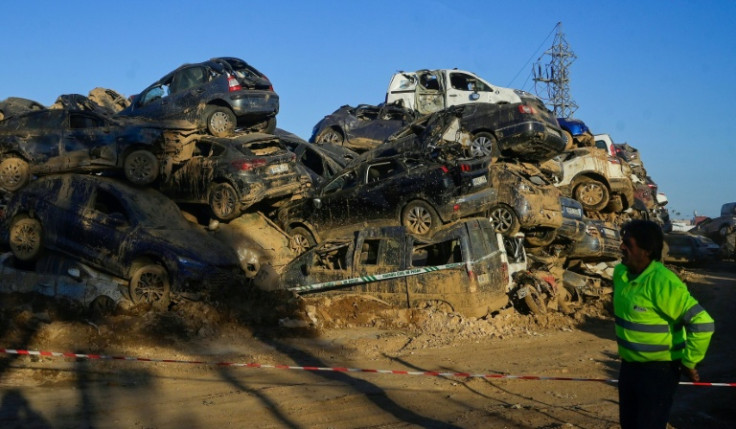'Nothing Left': Flood-hit Spanish Town Struggles One Month On

It was lunchtime and residents of Paiporta, one of the places hit hardest by the deadly floods that ravaged eastern Spain last month, were lining up to get a hot meal.
There are no longer piles of mud in the streets, but life has been at a standstill for many in this suburb of Valencia, Spain's third-largest city.
The torrential rains that fell on October 29 killed at least 230 people, mainly in the east of the country, including 45 in Paiporta.
"We need a lot of help," said 70-year-old pensioner Jose Moret as he waited for his turn.
While some shops have reopened, life remains difficult in a town where most people lost their cars, which are now piled up on the outskirts.
The dark mud that covered everything in the wake of the catastrophe has been replaced by a brown dust that envelops streets smelling of damp and sewage.
An army of soldiers, street-sweepers and volunteers have scrambled to unblock water pipes and remove debris, but the scale of the destruction in this town of some 27,000 residents was so great that normal life still seems a long way off.
"Psychologically, we are very affected. Physically, we are very tired," said Raquel Rodriguez, whose hair and protective white jumpsuit were stained by mud, as she took part in the clean-up operation.
The 43-year-old economist had just left a supermarket when the torrential rain hit but was able to take shelter in an elevated area. Her ground-floor flat was flooded and she has been living with relatives for the past month.
Rodriguez now spends her days trying to organise the removal of mud from her building's underground garage with the help of volunteers.
The public administration has done "zero", she said, adding that residents feel "abandoned".
Anger at the authorities for their perceived mishandling of the crisis boiled over in Paiporta when King Felipe VI and Queen Letizia visited along with Prime Minister Pedro Sanchez on November 3, when furious residents pelted them with mud.
Even though the state has approved billions of euros in aid, Mari Carmen Cuenca, 54, said she also feels alone. She was able to save very little from her home, located just a few blocks from a ravine.
"Four walls of the house are left, there is nothing left," said Cuenca, who has been borrowing clothes and staying with her family at a friend's house since the floods.
In her neighbourhood, many houses are still empty, with holes in their entrances.
Signs expressing anger at the authorities or gratitude to volunteers who poured in from around the country to help are displayed on many balconies.
"We will come back stronger" was written on a wall of a building in the town, where some 4,000 students are still without classes, according to the local parents' association.
Some parents have managed to temporarily enrol their children in nearby schools, but others have no way to take them to schools further afield.
"I don't have a car, I lost it and my eight-year-old daughter has been locked up at home," said Pilar Roger.
Children have seen "a lot of things they should not have seen as children" during these past weeks, she added.
After clearing away debris, some residents said they are starting to feel more hopeful. Eva Vazquez said she and her business partner plan to reopen their bookstore in the centre of Paiporta, which was totally destroyed by water.
"In the first days we did not know where to begin. But little by little you see people are helping... and in the end we decided we could do it," the 43-year-old said.
Nearby, locals lined up to buy tickets for Spain's huge Christmas lottery.
"We have lost our cars, we have had bad luck, let's see if we win this time," said 53-year-old housewife Paqui Gonzalez with a smile.



© Copyright AFP 2024. All rights reserved.





















